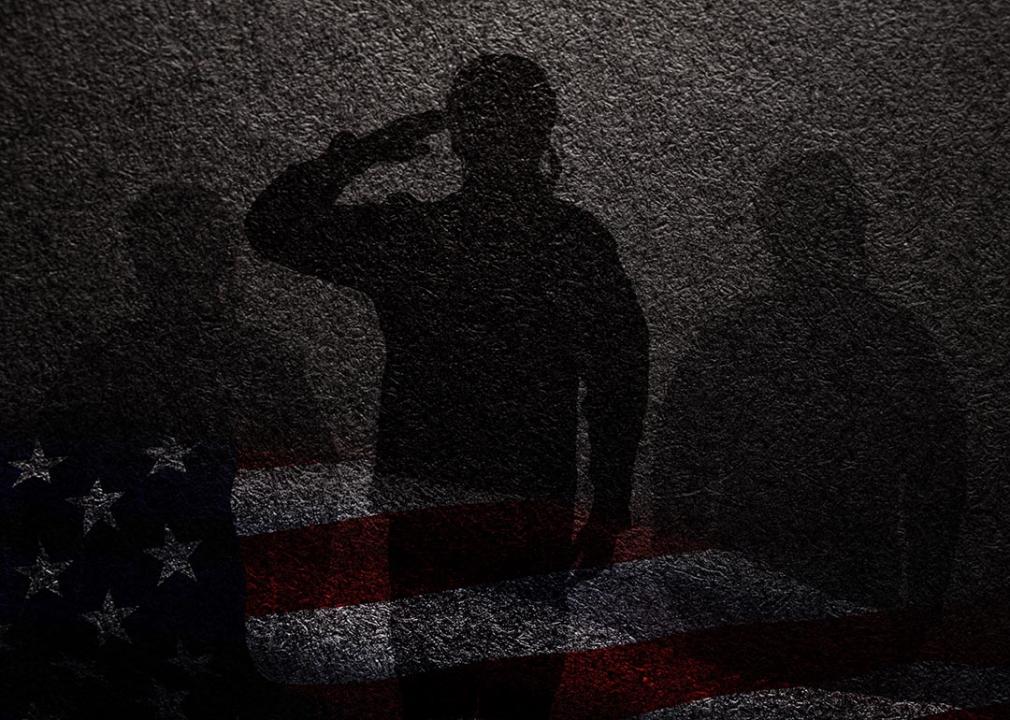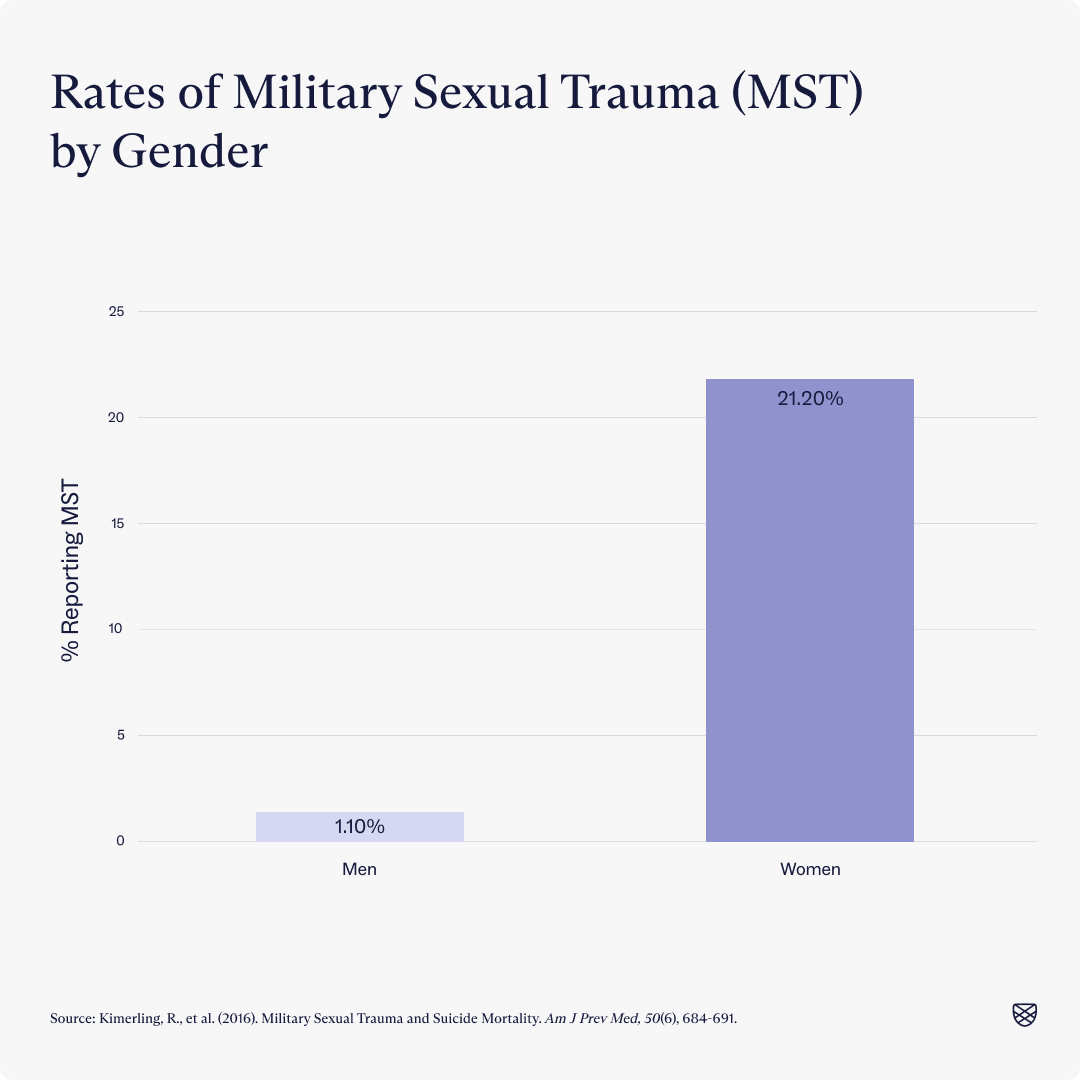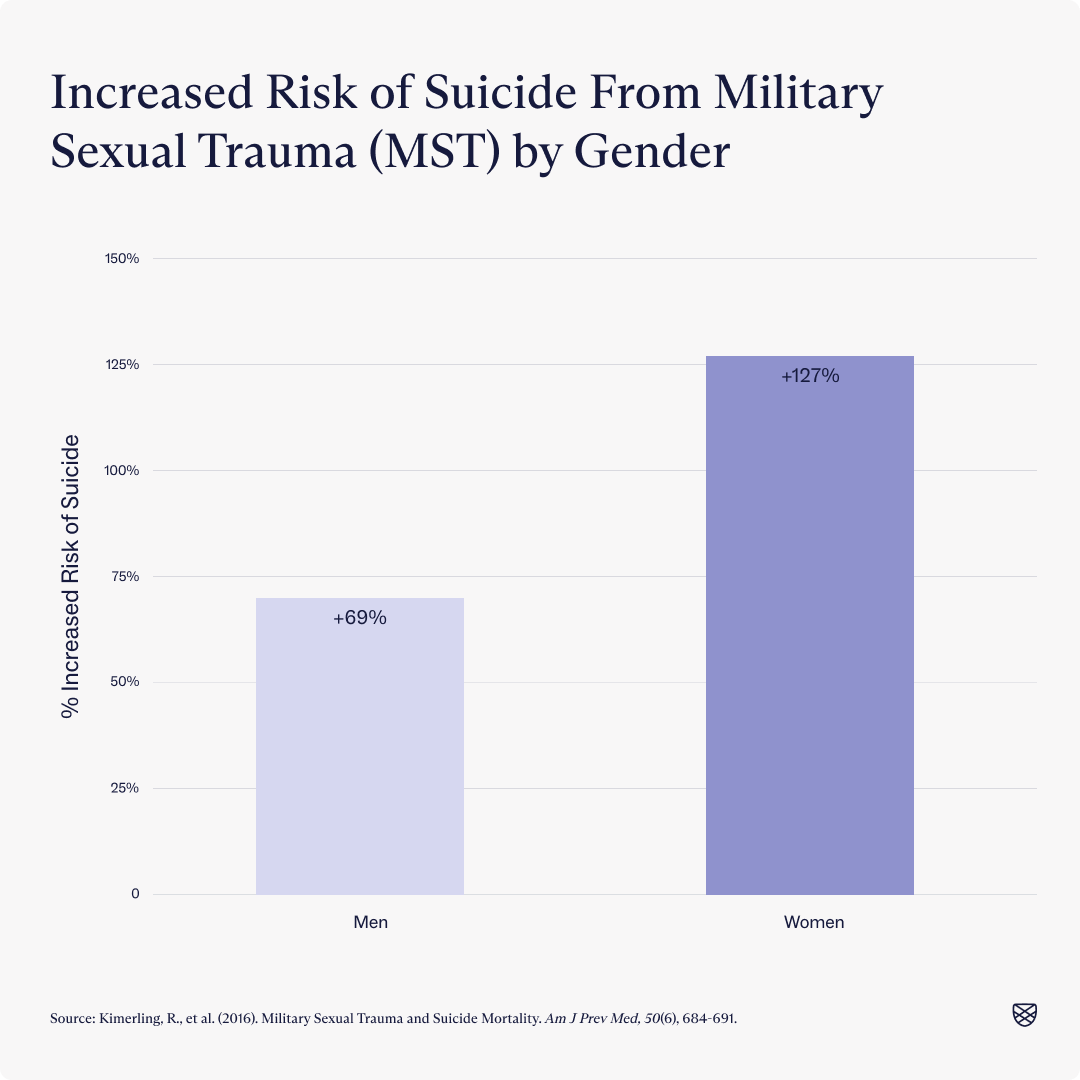
Among the many dangers faced by those serving in the military, sexual trauma is shockingly common. About 1 in 3 female veterans seen by Veterans Affairs (VA) providers report experiencing military sexual trauma — defined as any sexual assault or sexual harassment that happens during military service. About 1 in 50 male veterans report military sexual trauma, too. Self-reports and interviews show higher prevalence rates of military harassment and assault for veterans of all genders compared to reviews of VA medical records, data shows.
Military sexual trauma takes a toll on the mental health of survivors. Among the most commonly diagnosed conditions following military sexual trauma is post-traumatic stress disorder (PTSD), a condition that already disproportionately affects veterans. According to the VA, about 7% of veterans will experience PTSD at some point in their lives. Surviving military sexual trauma, though, significantly increases the odds of meeting the criteria for PTSD, data shows. In fact, emotional bullying, physical assault, and sexual harassment and assault were all associated with PTSD symptoms among survivors, according to one study.
PTSD and other mental health symptoms resulting from military sexual trauma are treatable, but factors like stigma and financial barriers stop some veterans from accessing the care they need — at times with dire results: roughly 17 veterans die by suicide each day, according to a 2022 report, and military sexual trauma puts veterans at a significantly higher risk of suicide, data shows. If you're having thoughts of harming yourself or someone else, this is a mental health emergency, and you should contact the 24/7 Suicide & Crisis Lifeline by calling or texting 988.
To assess how military sexual trauma affects survivors' mental health, Charlie Health looked at the numbers, including data on rates of depression and PTSD among survivors. We also offer some evidence-based tips on how survivors of military sexual trauma can care for their mental health and access life-saving mental healthcare.
As mentioned, many survivors of military sexual trauma develop PTSD. One study of over 125,000 veterans found that female veterans who experienced military sexual trauma were 9 times more likely than their counterparts to develop PTSD. The same study found that military sexual trauma was associated with increased odds of developing anxiety disorders, depression, and substance use disorders.

A 2022 study found that women who faced sexual comments during their service had higher odds of depressive symptoms relative to women with no military sexual trauma. The same study found that the odds of depressive symptoms were 6.5 times higher among women and 8 times higher among men who experienced several sexual stressors relative to those who reported no military sexual trauma.
Veterans who endure military sexual trauma are at a significantly higher risk of suicide, multiple studies show. According to a 2019 study, 3 out of 4 people (75%) who experience military sexual trauma report suicidal ideation after the trauma. Of those survivors, just over 40% report suicide attempts after military sexual trauma, the study found. Another study looking at the link between military sexual trauma and suicide found that the risk of suicide was 69% higher for men and 127% higher for women who experienced military sexual trauma compared to those who did not.

As the mind and body are connected, the long-term effects of military sexual trauma extend beyond mental health, also affecting survivors' physical well-being. A history of military sexual trauma among women is linked to a range of physical health conditions, including heightened susceptibility to diabetes mellitus, hypertension, obesity, and cardiovascular risk factors, studies show.
Addressing the mental health effects of military sexual trauma is, first and foremost, a systemic issue. Above all, leaders need to ensure that people who serve in the military are not subject to sexual harassment, sexual assault, or sexual violence. However, survivors of military sexual trauma are not without support. Below are some steps that survivors can take to support their mental health.
Seek mental healthcare
Reach out to mental health professionals who are experienced in working with survivors of sexual trauma. Therapy, such as cognitive-behavioral therapy (CBT) or trauma-focused therapy, can help address symptoms of post-traumatic stress disorder (PTSD), depression, anxiety, and other mental health challenges. Most VA clinics have resources and mental healthcare referrals, and there are many options online.
Develop coping skills
Learn and practice coping skills to manage symptoms of stress, anxiety, and PTSD. This may include deep breathing exercises, progressive muscle relaxation, grounding techniques, or mindfulness meditation — exercises that have been shown to improve PTSD symptoms when used in conjunction with other mental health support, like therapy.
Join a support group
Consider joining support groups or peer-led programs specifically for survivors of military sexual trauma. Connecting with others who have had similar experiences can provide validation, understanding, and encouragement. Also, research consistently shows that engaging in group healing (especially in addition to individual therapy) is one of the most effective ways to recover from the effects of sexual violence. Organizations like the VA or community-based support groups may offer these resources.
This story was produced by Charlie Health and reviewed and distributed by Stacker Media.